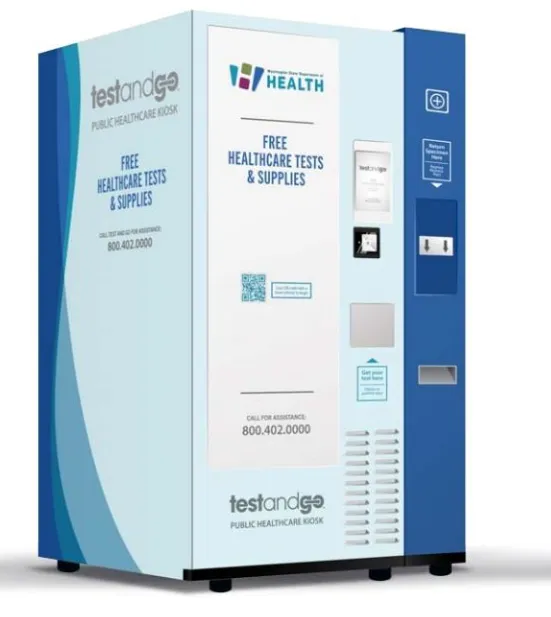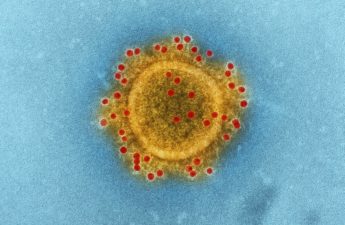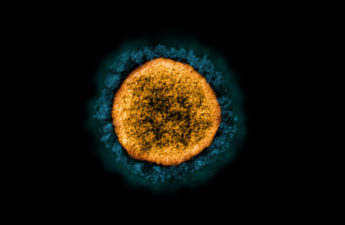From the Washington State Department of Health

COVID-19 and influenza may not be making headlines right now, but they’re not gone. Testing remains one of the best ways to promote safety with respiratory illnesses.
But where can you conveniently find affordable tests? Although they’re available for purchase in many stores and pharmacies, DOH is expanding free access to tests with new self-serve kiosks around the state. Currently, seven counties offer at least one kiosk.
What’s in the kiosks?
The kiosks provide at-home COVID-19 rapid antigen tests, alongside COVID-19 and influenza (flu) PCR tests with results available within 48 hours for both COVID-19 and flu.
Some kiosks may also have:
- Naloxone (a nasal spray that can reverse an opioid overdose)
- Pregnancy tests, sexually transmitted infection (STI) prevention tools
- Over-the-counter medications
- Other health care supplies
Are the items in the kiosks free?
Yes. DOH and local health jurisdictions provide these tests and other supplies at no cost to you.
Where can I find a kiosk?
Look for kiosks in food pantries, churches, schools, and libraries. Find one near you with the kiosk locator.
DOH is working with local health jurisdictions and Tribal Nations around the state to determine the best locations for kiosks. Our goal is to reach the people who need these supplies most.
Ten kiosks have been placed around the state, and more are coming soon.
How do the kiosks work?
Use the screen on the kiosk to browse items available, and then select the item you’d like to dispense.
The kiosks can translate instructions and text into 11 languages. The most common languages are:
- Spanish
- Vietnamese
- Russian
- Marshallese
- Ukrainian
- Chinese (Mandarin)
- Chinese (Cantonese)
- Korean
- Arabic
- Somali
- Tagalog
Local health jurisdictions can choose to add more languages.
Why do I still need to test for COVID-19 and the flu?
Testing is part of our new normal. Finding out if you’re sick with COVID-19 or the flu can help you protect your family and community. You can take protective steps like staying home and wearing a mask until you’re no longer contagious.
Testing can also help you determine if you are eligible for treatment. When you take a test, you prioritize your health while protecting your loved ones. This is especially important for those at high risk of getting seriously sick or hospitalized from respiratory illnesses.
You can find full guidance on what to do if you are sick with COVID-19 or another respiratory virus on DOH’s website.
What should I do if I test positive?
If you feel sick with respiratory virus symptoms or test positive for COVID-19 or the flu, stay home and away from others.
You can return to normal activities after your symptoms improve for 24 hours. You need to also not have a fever (without using fever-reducing medication) for 24 hours.
For five days after returning to normal activities, wear a mask and take added precautions. These precautions include:
- Taking steps to improve air flow and filtration
- Washing your hands often
- Cleaning regularly
- Physically distancing
- Testing
Public health recommendations are different for health care settings, correctional facilities, and homeless shelters.
Read our full recommendations for what to do if you feel sick or test positive. This resource also includes ways you can avoid spreading respiratory viruses to people at high risk of getting very sick.
Sign up and get notified when we post new articles to our blog!
Follow us on Facebook, Twitter(X), Instagram, and LinkedIn.
Visit our website for more from the Washington State Department of Health.


